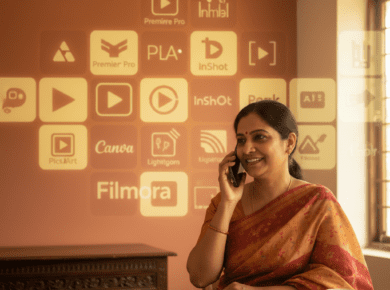Many teachers feel that going paperless is an unnecessary luxury. School districts find it difficult to pay for digital educators and technology managers or buy top-of-the-line tablets for students. The majority of counties and school districts are going paperless in the classroom and encouraging teachers to eliminate paper from the classroom.
There have been writing pads, rough books for practice, pencils, erasers, sharpeners, rulers, and other stationery items that are necessary to prepare for exams for ages. It’s also a competition among students to write the most supplements on the day of exams. Students are required to write long answers to gain better marks in the current education system that emphasizes theoretical knowledge. Despite writing just one word in a double-page additional supplement, many students keep adding accessories to keep up with their friends.

Using technology in the classroom has many benefits
It is unnecessary to tout the benefits of classroom technology; instead, we should convert our educational institutions into blended learning centers that do not use paper. The following seven highlights may hit the nail on the head and inspire you to ditch paper and embrace ed-tech concepts.
Conservation of the Environment
Paper preservation equates to environmental conservation. Even though today’s paper waste is recycled to a greater and greater extent, we cannot ignore the electric power required to do so. The only benefit of keeping paper and implementing technology in the classroom is that they help to protect our natural ecosystem (i.e., the environment).
More Economical Education
By converting all of the money needed for paper, stationery, school supplies, project work, and exam sheets into savings, going paperless will make the piggy banks happy. The creation of school apps will most assist parents and students and the best going paperless solution.
Helps with intuitive learning
Education without paper will alter how students view their academic careers. Students will be intrigued and excited by the educational technologies. Additionally, rather than testing kids’ memory, the digital assessment will gauge their intelligence. Further, collaborative classrooms will assist teachers in facilitating interactive, real-time learning sessions that directly enhance students’ developing intuitive talents.
Simple Academic Curriculum Updates
The academic calendar must be revised annually or every few years to keep students abreast of current knowledge. Reprinting textbooks and workbooks was a common practice in the conventional paper-based educational system, which forced students to pay exorbitant prices for the most recent editions. In contrast, classroom technology is not required to deal with this problem.
Some of the ideas for going paperless in the classroom are as follows:
Utilize whiteboards and other reusable instructional resources
Going digital is not a must to go paperless. It is advisable for educators to embrace whiteboards and laminated materials that children can write on and erase. Children love markers, and you only need to make the materials once. With no need for stacks of paper, students can still practice their handwriting while taking a break from their screens.
Reduce Paper Use in Lesson Plans
Particularly in a focused classroom, some teachers are incorporating their shift to a more Paperless paradigm as part of their lesson plans. It has been observed cutting down on paper consumption can save about 24 mature trees. To protect the trees and get fresh air, going paperless is the best one to protect them.
The students consider methods to use less paper in their own lives at school and at home; teachers might explain why they are switching to a paperless model by talking about environmental changes and biology.
Purge Your Classroom of Extraneous Papers
Examine your desk drawers and cabinets for any paper you’ve been saving but not using if you want to create a paperless statement. An educator and instructional consultant suggests that teachers scan and upload their students’ paper worksheets and other learning materials to the internet for access and storage rather than keeping them on file. You can classify and identify the sheets according to their subject matter, which makes them easier to organize online. Furthermore, sharing educational resources with other teachers is made simple as a result, and it helps to go paperless.
Between students and teachers, screens form a barrier.
Blending non-technical and digital education methods has another advantage. There is a real barrier between students and their teachers while they are learning in front of computers. Regardless of whether they are working ahead or are just playing on the computer, it is far simpler for students to lose focus. But if you are working on paper, your concentration might divert here and there.
The Final Word
Blended learning, which involves exchanging knowledge via intelligent electronic devices like computers, tablets, and eBook readers, is made possible by going paperless in the classroom. Students will no longer be constrained by geographic distances since they will be able to participate in lessons via video conferencing and online meetings.
Classplus is an education technology company that helps educators. You can get all the benefits of new technologies while you are committed to your work. Get your own app custom-built for your needs l, which helps you harness the power of technology as you wish. So, do not wait, be updated with technology with Classplus.



